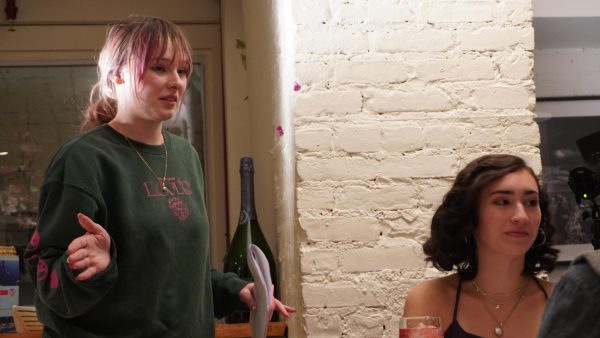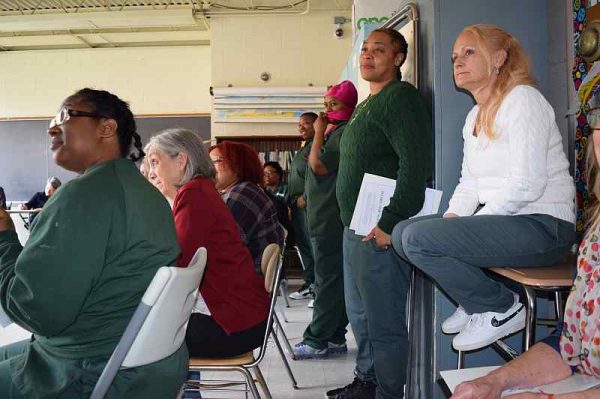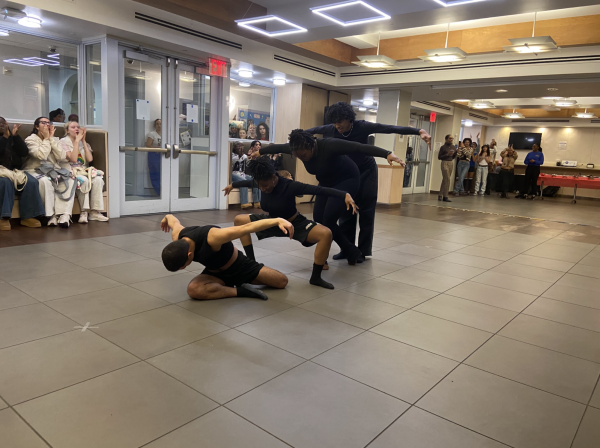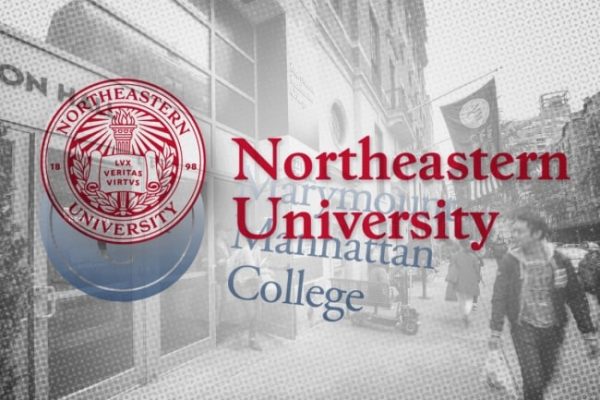Libby Parker: The Broadway Dietitian Making a Difference
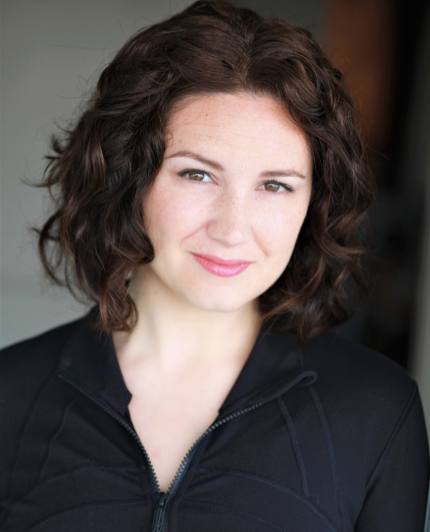
“Can we go back?” Libby asked her mother as they left the theatre. They had just seen a professional dinner theatre production of 42nd Street and Libby’s 5 year old heart instantly fell in love. She couldn’t possibly fathom the idea of never seeing it again. So after relentless begging, her mother took her to see it for a second time! That’s when Libby knew she was a musical theatre person, laying the path for the rest of her life as a performer and prominent advocate for theatre artists.
Today Libby Parker is a New York based Registered Dietitian, author, educator, business owner, and actress. She skillfully combines her love for musical theatre performance with her experience in the world of science and nutrition to provide educated guidance for people looking to recover from an eating disorder or the overwhelming expectations of modern diet culture.
Her published self-help book, Permission To Eat: A practical guide to working yourself out of an eating disorder during college, while celebrating the awesomeness that is you!, hit Amazon bestseller status in 2019 and serves as a helpful guide for college age individuals struggling with unhealthy eating habits. Now she strives to spread even more awareness on nutrition through various styles of education and leadership to hopefully change the way in which food is discussed in performance based environments.
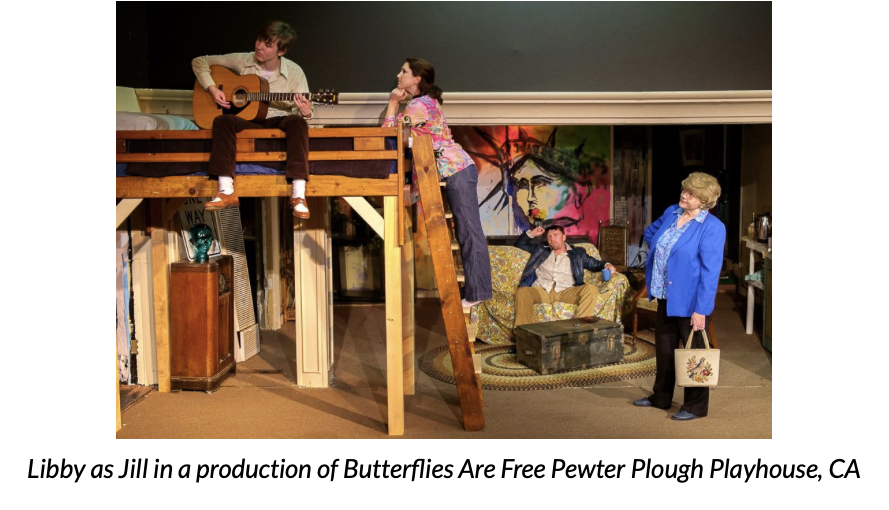
Libby is the owner of “Not Your Average Nutritionist” a group practice for eating disorder recovery that has been active for over 10 years. Currently, Libby is moving on from “Not Your Average Nutritionist” and creating a new brand under the name “The Broadway Dietitian” no longer taking one on one clients, she plans on using her business to focus on public speaking, writing, and theatre education.
Libby’s specific area of expertise is intuitive eating: a way of looking at food and eating disorder recovery that eases you into a state where you fully trust your body’s natural way of providing nutrients for itself. She likes to use a baby’s natural intuition as an example for this: i.e. a newborn baby will naturally want to eat when they are hungry and stop when they are full. Calorie counts on food labels weren’t even mandatory until the 1990s so for the thousands of years that humans have been a species, they’ve only ever really relied on their intuition and whatever they had access to.
According to Libby, if you truly trust your body and give it what it is asking for, you will naturally develop a very balanced diet. “A lot of times culture, society, how we’re brought up, what we read, etc, influences externally how we choose to eat.” says Libby, “If we can go back and really listen to the body’s internal cues, which takes work if you’ve gone out of that … you’re going to have a pretty balanced nutrition assuming you have access to food.”
Right now, Libby is working towards a future of normalizing nutrition within the world of performance with an emphasis on theatre actors specifically, or as Libby likes to call them, “theatre athletes.” She currently leads a support group called “5, 6, 7, eat!” for people in the business both on stage and backstage who struggle with eating disorders, diet culture, body image, or simply just want to talk about the pressure they feel being in the industry. Libby says this is one of the things that she loves most about what she does, “that group has been so much fun because we’re all speaking that same language together and it’s proven to them that they’re not alone.”
A link to her support group page can be found here: https://thebroadwaydietitian.com/567eat/
Her most recent and prominent passion has been introducing these kinds of discussions regarding nutrition to the theatre departments of college level BFA programs and conservatories. According to Libby, there seems to be a major lack of education in health care for this field, “You know, most college students have to take a very general health or nutrition class and not only are most of those very antiquated … but there isn’t anything really specific to what stage folks are putting their bodies through.”
By calling them “theatre athletes” Libby approaches this kind of education through a sports nutrition perspective based on her experience in the theatre and how taxing she knows it to be. But she quickly learned that all of this information couldn’t be squeezed into a 2 hour seminar, so she’s been approaching colleges to pitch the idea of adding her 1 to 3 credit health class within their theatre curricula. One college (she is not allowed to disclose) has already invested in doing a 1 credit class with her! With this, she plans to write a free-standing textbook that anyone could buy and her main goal is to license the curriculum so that she can sell the usage rights to other universities.
Lanes Miller, a musical theatre student here at Marymount, attended a talk back Libby had on campus last spring. They raved about her work and personable guidance, “I felt so seen by her and she took time beyond her allotted lecture to sit with me and just talk about passion and purpose. She is a trailblazer, she is personal, and her work is so beneficial to anybody in the theatre community.”
But Libby didn’t always know she wanted to pursue a career in nutrition. When she was a freshman in college, she was certain she would become a large animal veterinarian. However, one day she had a realization about her career of choice and thought to herself, “do I really wanna get called out at 3 in the morning in the middle of a blizzard to stick my arm up a horse’s butt?” Absolutely not. So she began to wonder how she could help people and somewhere along the line as she was reading a woman’s health magazine, she came across the credential “RD”: Registered Dietitian.
Though she didn’t know it at the time, Libby was suffering from her own eating disorder which was later diagnosed as atypical anorexia. When she saw RD in the bi-line of that magazine she thought to herself, “there’s a profession of people talking about nutrition and weight loss? I’m good at that!” and decided to be a nutrition major. Fortunately, in going through the nutrition major, especially with Libby’s strong belief and background in science, she behaviorally worked herself out of the eating disorder because she could see what her body was missing. Libby says that was the best thing that could have happened to her.
Eating disorder awareness and education has always been extremely important but it seems that now more than ever, taking action is vital to the high school and college age adolescents of this generation. According to the American Society for Nutrition, with eating disorders affecting approximately 24 million people in the United States alone, they are among the deadliest mental illnesses. Only second to opioid addiction. COVID-19 has also heavily impacted these statistics being that it caused many people already suffering with eating disorders to feel “a greater degree of uncertainty and anxiety, making it even more challenging to maintain healthy eating patterns.”
Furthermore, the journey to recovery isn’t as clear-cut as some people may think. Libby compares it to weight loss ads, “it’s not like when you look at weight loss ads when there’s this big before and after photo and it’s really dramatic and what not. It’s the little things that really add to quality of life and health.” She fondly remembers how sometimes her clients will send her texts or emails documenting an important step in their journey to recovery. These have spanned from things like someone enjoying a birthday cake on their birthday, someone finally conquering one of their trigger foods, or people getting their period back after months or even years without it.
In chapter 10 of her novel, Permission To Eat, Libby writes, “We need to appreciate that we are also all designed to be unique and interesting individuals. If we all looked exactly the same, that would be a really boring world.” Through her kind personality, life experiences, and determination to bring life back into the eyes of suffering people, Libby becomes a hero for those who need her the most. She is the broadway dietitian making a difference.
For anyone in the MMC community interested in learning more about Libby, her work, or Intuitive eating, she’ll be hosting another talk back on Wednesday, April 19th at 1pm in the Regina Peruggi Room!

Kayla is a Staff Writer for the Monitor with a specific focus on writing for theatre! She is currently a junior Musical Theatre major with a Concentration...

